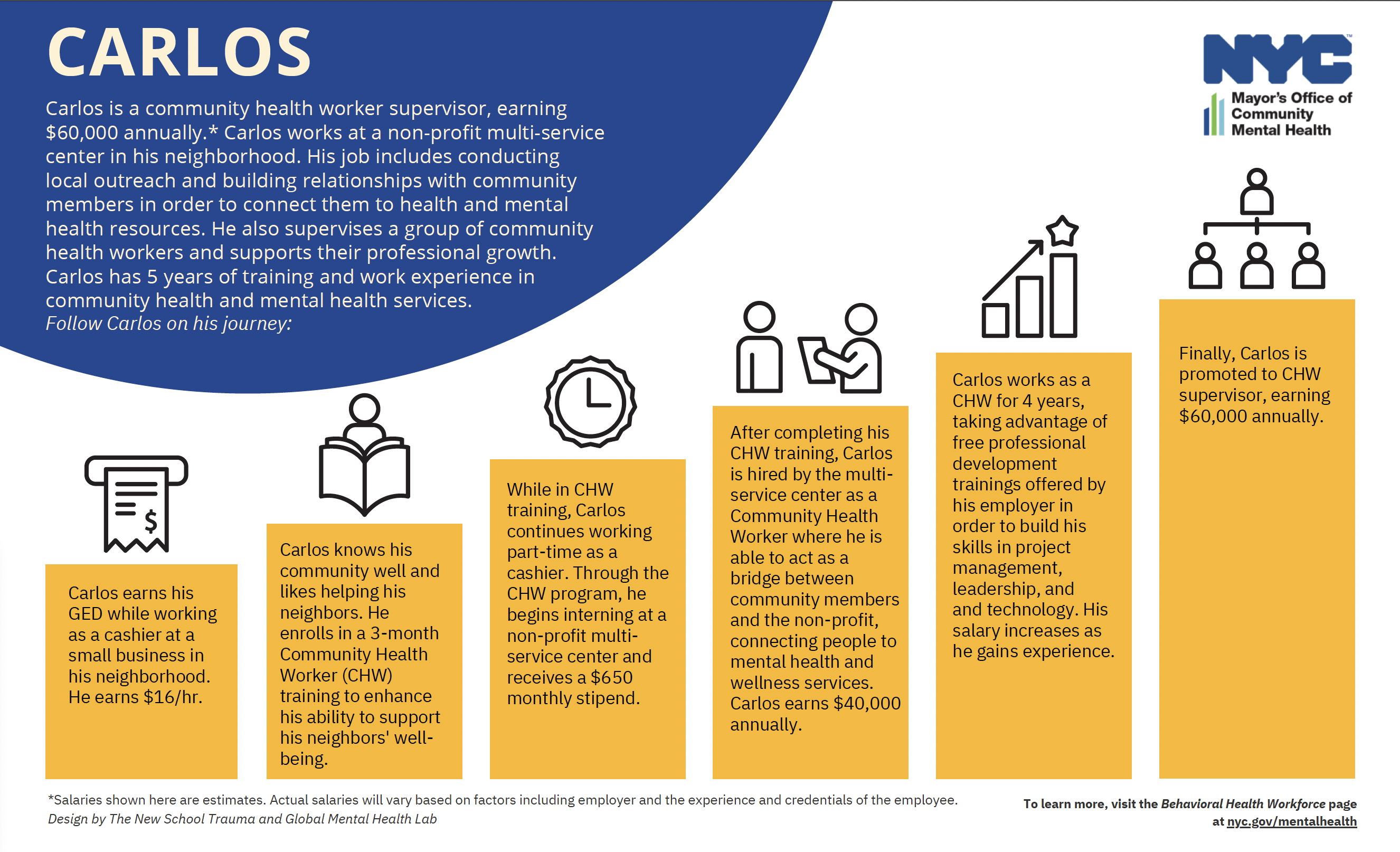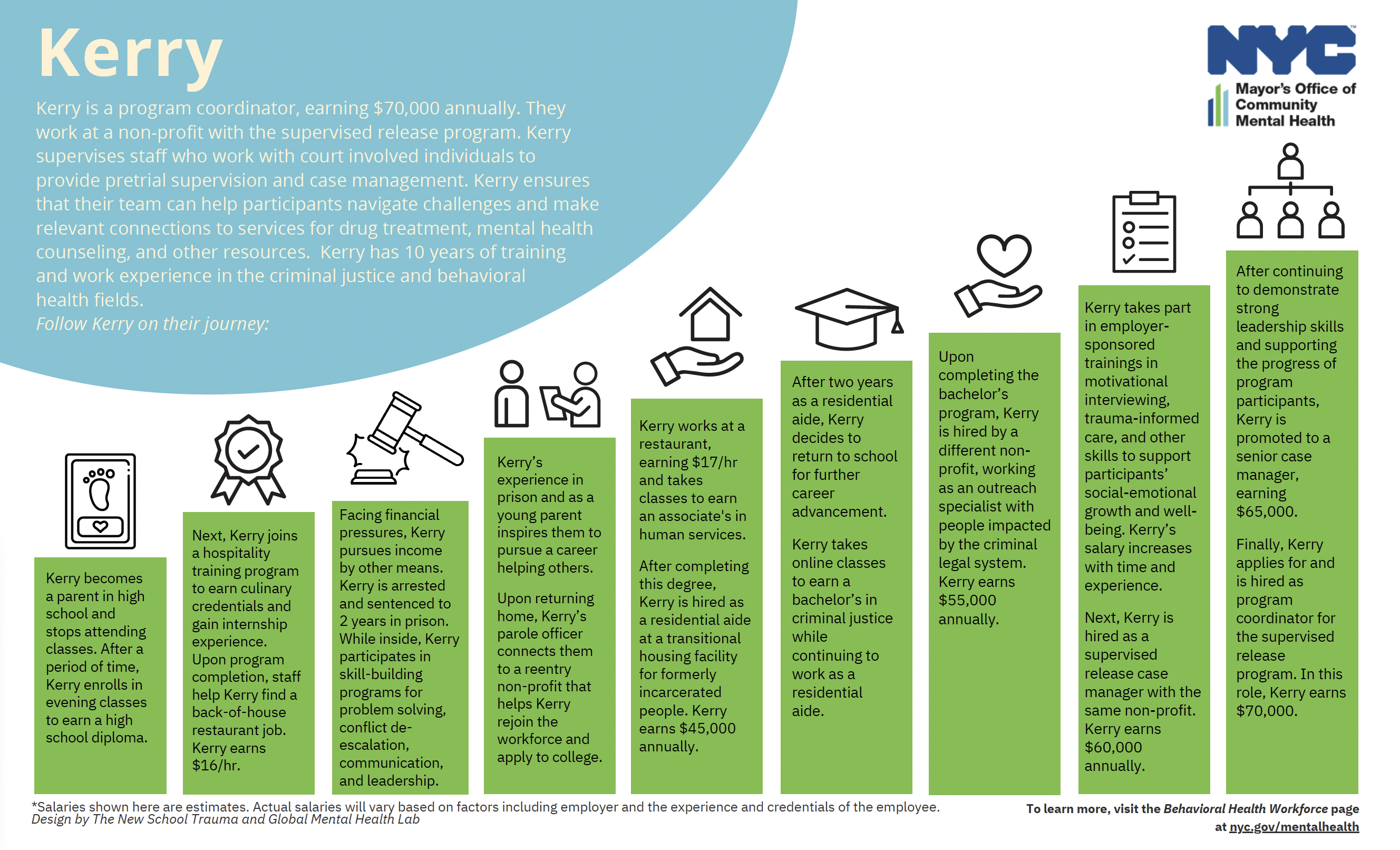Behavioral Health Career Roadmap
Looking to make a difference?
The behavioral health workforce plays a critical role in building and sustaining a city where all New Yorkers are safe, healthy, and able to access resources. Behavioral health professionals respond to the mental, emotional, or substance use challenges of individuals and communities, promoting well-being through positions in direct service and administration.
The public sector, behavioral health workforce includes jobs in government agencies, public hospitals and clinics, schools, facilities that accept Medicaid, faith-based organizations, and non-profits and community-based organizations. There are many job openings at every level of experience, and the growth of behavioral health careers is projected to continue expanding by more than 25% through 2030. This means there is tremendous opportunity for YOU to become a behavioral health professional!
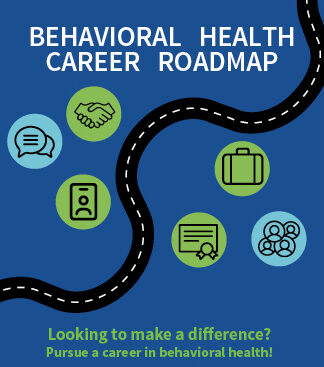
The Behavioral Health Workforce Career Roadmap outlines job opportunities as well as certifications and college degrees to help you prepare for success. Career coaches, case managers, and college counselors are also encouraged to utilize the Career Roadmap as an advising tool. Download the full-size roadmaps below and continue reading to view salaries as well as sample career pathway stories.
Behavioral Health Career Roadmap
Flyer
Poster (11x17)
Brochure
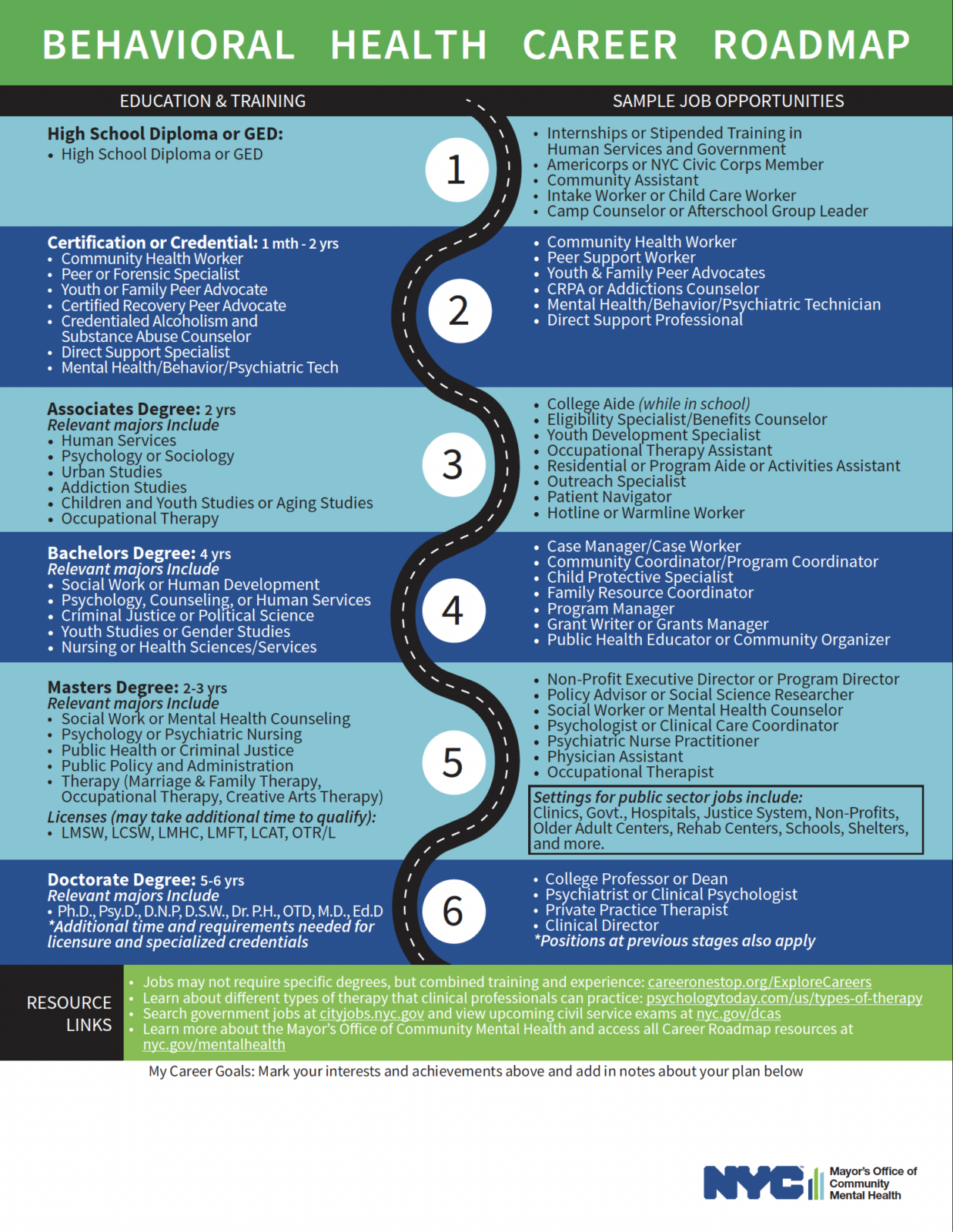

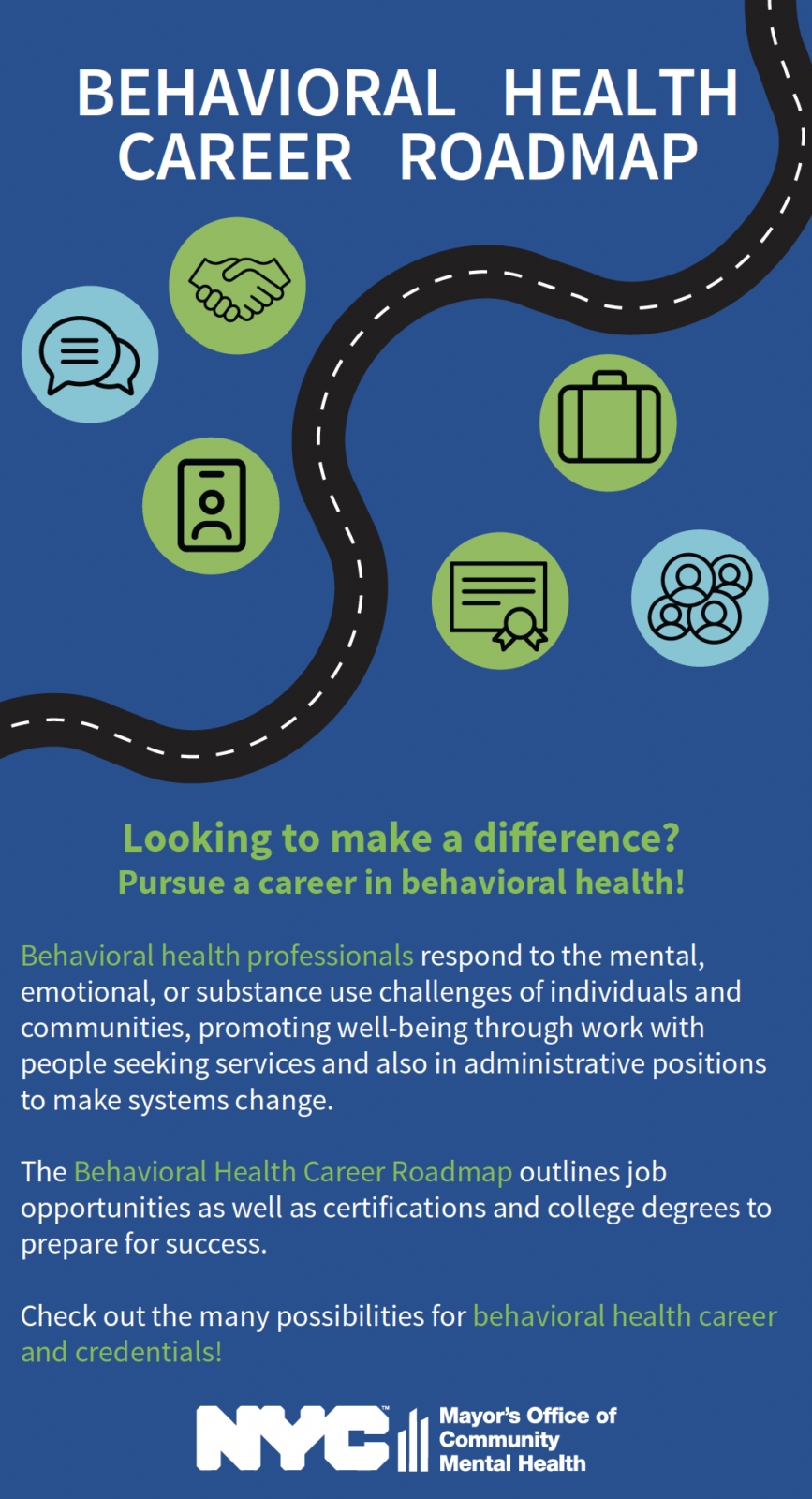
Behavioral Health Career Salaries
The Roadmap includes more than 40 sample jobs. While salary ranges will vary, below are some of the 2024 NYC regional salaries for Department of Labor standard occupational codes in behavioral health.| SOC | Title | Average Salary |
|---|---|---|
| 29-1223 | Psychiatrists | $228,818 |
| 29-1122 | Occupational Therapists | $126,549 |
| 19-3039 | Psychologists, All Other | $111,194 |
| 21-1023 | Mental Health and Substance Abuse Social Workers | $100,710 |
| 21-1092 | Probation Officers and Correctional Treatment Specialists | $95,106 |
| 21-1029 | Social Workers, All Other | $82,450 |
| 31-2011 | Occupational Therapy Assistants | $81,463 |
| 21-1021 | Child, Family, and School Social Workers | $79,512 |
| 21-1012 | Educational, Guidance, School, and Vocational Counselors | $77,665 |
| 29-1129 | Therapists, All Other | $76,133 |
| 21-1022 | Healthcare Social Workers | $69,968 |
| 21-1091 | Health Educators | $68,054 |
| 21-1094 | Community Health Workers | $62,686 |
| 21-1015 | Rehabilitation Counselors | $58,995 |
| 29-2053 | Psychiatric Technicians | $58,187 |
| 21-1019 | Counselors, All Other | $56,208 |
Career Pathways
Each person’s career journey is unique! There are many entry points and advancement opportunities within the behavioral health sector. Below, learn about a few sample career pathways by following the professional journeys of Carlos, Kerry, Nadia, Sam, Jamie, and Alex.
Learn More: Behavioral Health Career Pathways in NYC
The Behavioral Health Career Roadmap is designed to offer guidelines for a career journey in the behavioral health field. It is not exhaustive, but offers sample job titles and commonly aligned training and education. Some jobs may not require specific degrees, but instead, a combination of training and relevant experience. Learn more about job opportunities and connected training.
